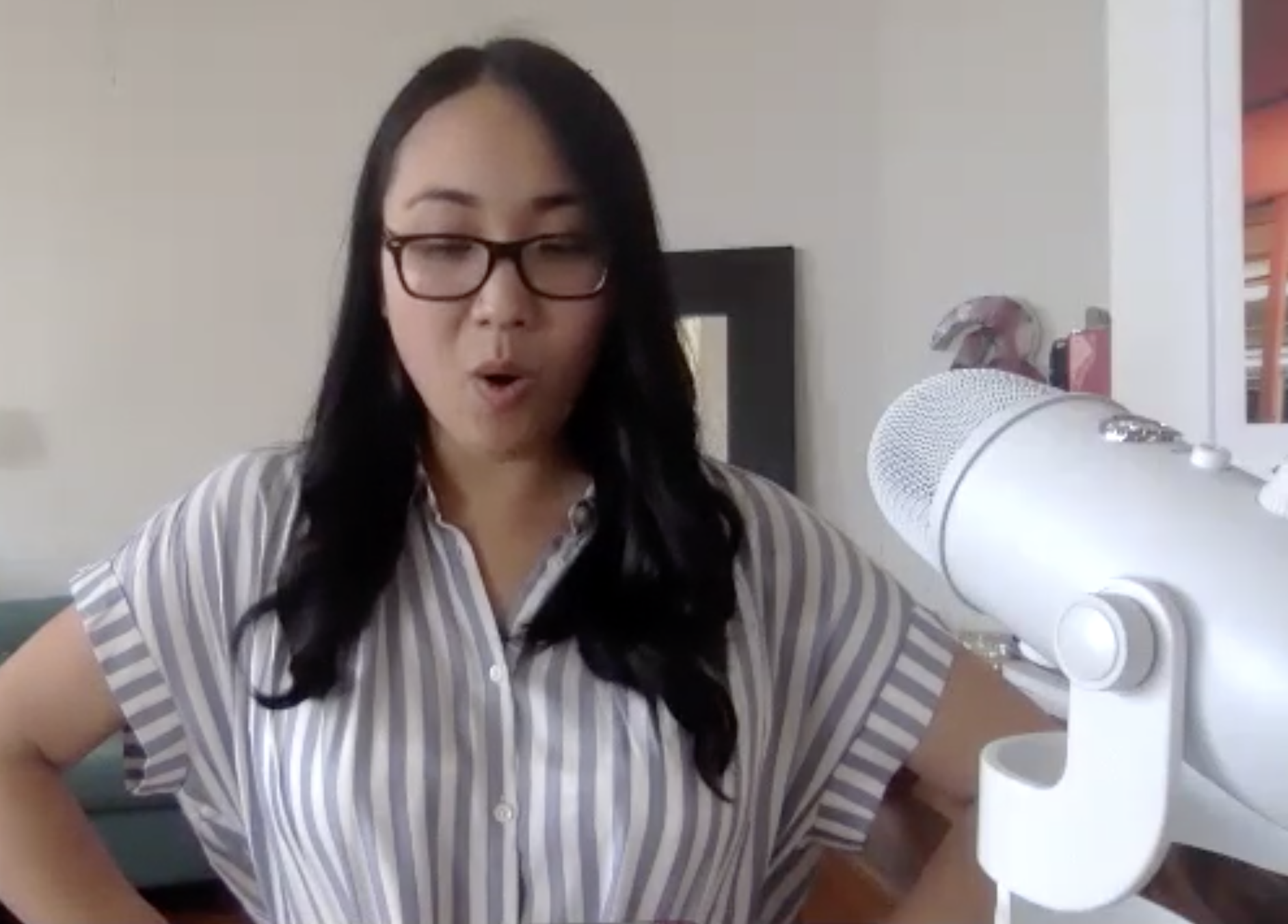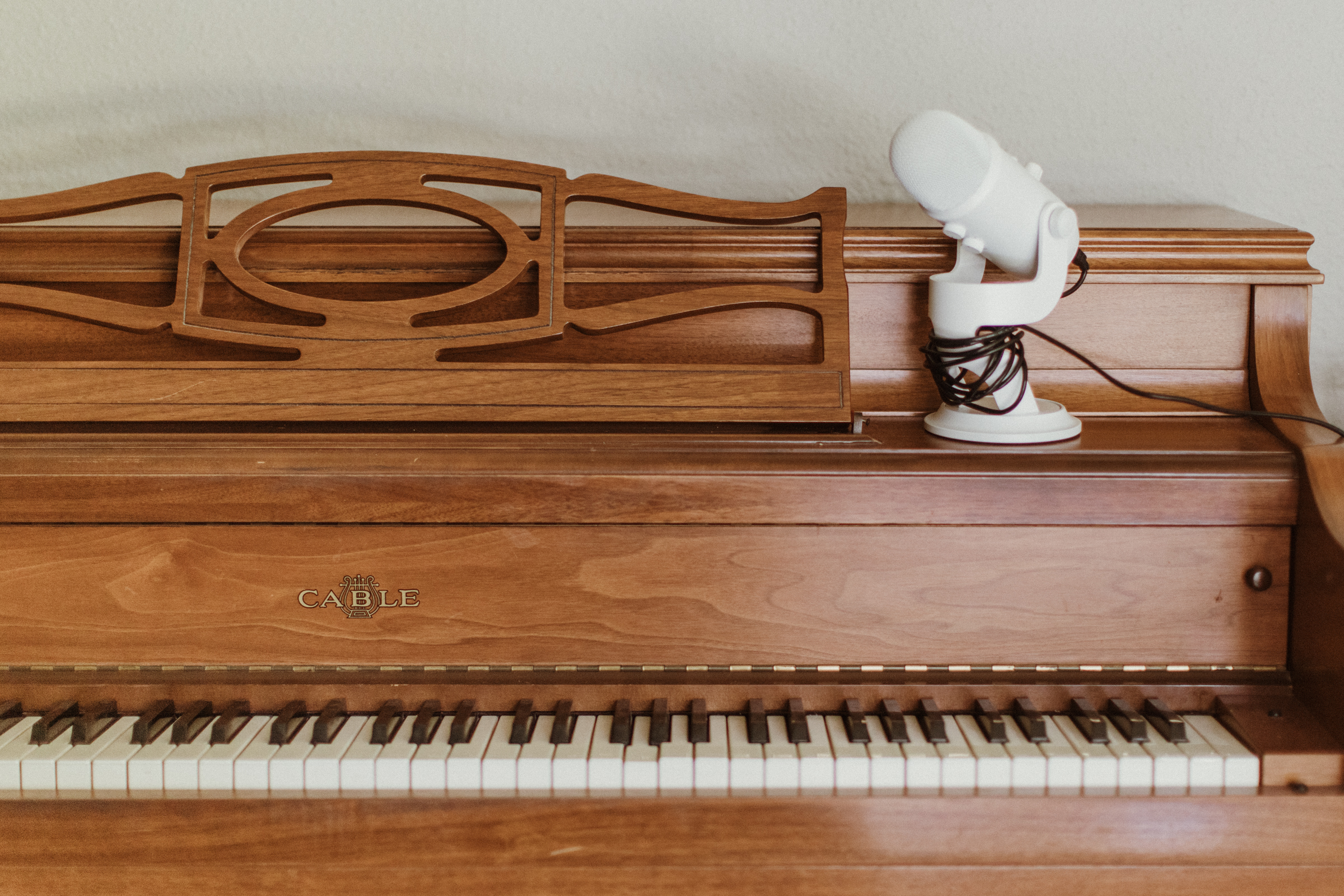“Make sure your shoulders are back. There should be a lift from down in the lower belly.” Brittani, my voice teacher, coaches me through a Zoom video conference. “Take in your breath and you’ll feel your chest lift.”
When the City of Dallas issued their stay-at-home orders, I turned to a familiar coping mechanism for comfort: singing. Online lessons from Lake Highlands School of Music have become a way to combat the detrimental effects of social isolation on my mental well-being.

It’s been years since I performed in a choral group, but this used to be a huge part of my life. Adopted from South Korea at 3 months old and raised by a white family in a middle class North Texas suburb, I often struggled to feel a sense of belonging. During high school, I joined show choir and was a cantor at church every weekend. Music was a safe haven and way to be part of something bigger than myself.
With places like Germany expected to ban communal singing in an effort to curb the spread of COVID-19, I feel both sorrowful for the losses our world has to bear through this crisis and thankful for the innovative artists who have found ways to keep music playing. Though we can’t sing together now in a traditional fashion, perhaps adopting best choral practices could help us become more successful in overcoming the pandemic.
“Breathe from your belly,” Brittani reminds me before I start the next vocal exercise. As I inhale to sustain a long phrase, peace washes over my body. On top of living through a global pandemic, I’m also in the middle of a divorce. Singing releases endorphins and can be a natural anti-depressant. Research conducted at the University of Frankfurt found that professional choir members after an hour-long rehearsal had lower levels of the stress hormone cortisol. Similar to meditation, the form of breathing into the diaphragm needed for singing has a biologically-soothing effect in addition to its musical benefits.
Ironically, virologists suspect it may also make people more vulnerable to contracting and spreading COVID-19. The same powerful breathing technique which gives the ability to project someone’s voice across a stage could very well amplify the trajectory of a deadly virus. Last month, a choir rehearsal at Mount Vernon Presbyterian Church left dozens of members infected with the virus and two deceased.
My voice is cracking when I try to reach higher notes. I’m forcing sound from the chest, instead of focusing it in my “mask,” a technique used to place vibrations for optimal resonance. Masks have a very different connotation these days. A few weeks ago, my biological sister in Korea sent me some in a care package along with several rolls of toilet paper. South Korea has been praised for their handling of the pandemic. The universal health care system there kept costs of COVID-19 testing low or even free for the entire population. Traditional Korean cultural values prioritize the needs of the larger public instead of the individual. Many people chose to stay home and self-isolate—even without government orders—in an effort to prevent spread throughout the community.
Meanwhile, here in the United States, armed protestors gather to demand the re-opening of our economy.
My choral director taught us to blend our voices. If one person’s singing was heard over the group, they were too loud. Yes, there was an occasional solo, but it was during the rich eight-part harmony sections where the music really shined. Cognitive musicologist David Huron proposed that music stimulates the production of the neuropeptide oxytocin and thus strengthens bonding. And group bonding has survival value. I made lifelong friends in choir. Some went on to perform professionally, but most of us only sing together during the occasional karaoke night.
I miss them.
I miss so much about life before.
The loneliness is palpable, yet difficult to describe. I think of Hans Christian Andersen’s famous quote: “Where words fail, music speaks.” Its power, while studied extensively, can never be fully quantified. Voice lessons are reminding me of my own resilience. There will be a time when we can make music together again. In the meantime, I pull my shoulders back, take a deep breath from the lower belly and feel my chest lift. Singing, I hold onto the high note—and hope.


